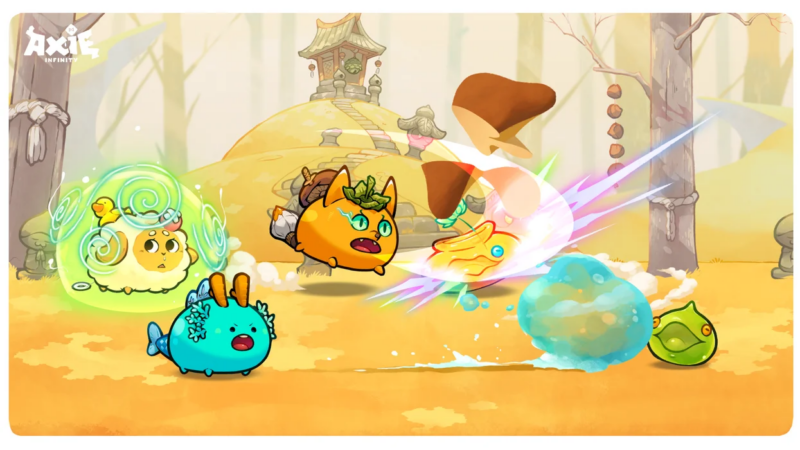

Game dev group says addressing NFT gaming’s “ethical issues” is a “priority”
source link: https://arstechnica.com/gaming/2022/04/game-dev-group-says-addressing-nft-gamings-ethical-issues-is-a-priority/
Go to the source link to view the article. You can view the picture content, updated content and better typesetting reading experience. If the link is broken, please click the button below to view the snapshot at that time.
NFT: No F-ing Thanks —
Game dev group says addressing NFT gaming’s “ethical issues” is a “priority”
IGDA director tells Ars the space is a "socio-political explosion waiting to happen."
Kyle Orland - 4/1/2022, 5:50 PM

The International Game Developers Association (IGDA), a professional group of thousands of game makers from around the world, is increasingly concerned that the "ethical issues" surrounding the use of non-fungible tokens in gaming represents a "socio-political explosion waiting to happen." That's according to Dr. Jakin Vela, the founder of social justice-focused gaming nonprofit Games for Me. Vela was recently named interim director of the IGDA.
In an interview with Ars, Vela expanded on the IGDA's "call to action" statement on NFTs in gaming from last July. That statement was critical of the technology and focused on the "energy inefficient methods" inherent to the proof-of-work blockchains that dominate the cryptocurrency and NFT space. "NFTs should never be used [by game developers] when a simple and far less costly database table can be managed to provide the same information and benefits," the group said.The IGDA's Climate Special Interest Group also compiled a growing list of arguments against NFTs in gaming. That document notes that gaming communities and game developers are largely uninterested in the technology, with 70 percent of game makers saying in a recent survey that they have no interest in using NFTs in their upcoming projects.
Taking a “stronger stance”
Now, though, Vela tells Ars that addressing the increasing levels of hype and investment around NFT gaming is still "one of our priorities" at the IGDA. The organization is "in the process of revising our stance to be a little stronger because there are actually a lot of ethical issues that come with NFTs," he said.
Among those issues, Vela said, is the prevalence of NFT-based "pyramid schemes," where new money from later players is required to increase the value of highly speculative NFT purchases from early players. See this report from consulting firm Naavik for more detail on how games like Axie Infinity require a constantly growing player base to power their "play-to-earn" economy.
Advertisement
While some view the crypto marketplace as a libertarian paradise free from restrictive government regulations, Vela sees that factor as a major potential vulnerability for gamers. Players who try to earn money through NFT gaming face a situation where "their resources—their entire investment in their employment activities—are reliant on this unregulated, really uncertain future ecosystem," he said, "and it can put people in some murky waters, I think."
The IGDA previously said that developers that absolutely can't use a centralized database for their project should at least "use proof of stake for cross-ecosystem NFTs." Those systems, which let users stake their cryptocurrency to help validate new transactions, "are far more energy-efficient than proof of work (PoW) algorithms and should be preferred whenever possible," the IGDA wrote in July.But Vela suggested to Ars that the organization's thinking is changing even on this compromise position. "Even now, more research is coming out, and proof of stake is still reliant on ecosystems that are driving carbon emission up further," he said.
Vela said the IGDA is working on a more focused statement addressing issues that touch on "more than just the environment." The group is "having recurring meetings to ensure that we're understanding all aspects of it." Those meetings might be necessary because, as Vela puts it, there's "a lot of technical jargon that leaves even a lot of intelligent people thinking, 'Wait, but what? But why? I'm buying a receipt for what?'... If things were demystified for people, it would be a bit easier to understand and it would help inform individual decisions."
Recommend
About Joyk
Aggregate valuable and interesting links.
Joyk means Joy of geeK